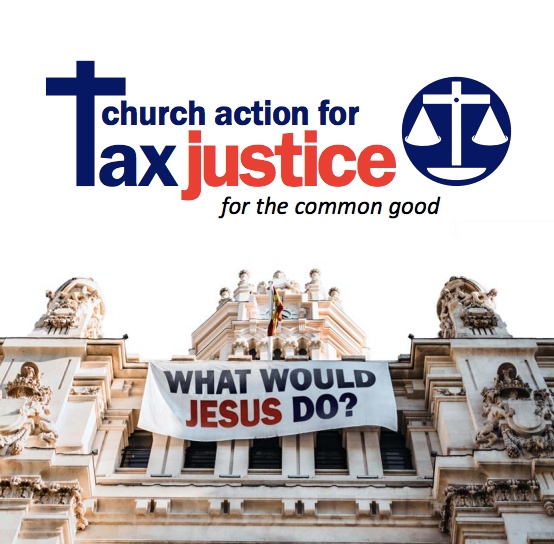Why I’m marking Tax Justice Sunday
Tax injustice harms so many – but campaigning against it works. Here’s how, and why, Christians can play their part, beginning with Tax Justice Sunday (14 June). By Justin Thacker
 It’s not often that the British public agree about anything, especially in relation to issues of morality. But one point they nearly all seem to agree upon is that we should pay our taxes. In recent opinion polls, it has consistently been shown that more than 80 per cent of the public consider tax avoidance to be morally wrong. This is true right across the political spectrum from Conservative to Labour, from Leave to Remain and across income groups and genders.
It’s not often that the British public agree about anything, especially in relation to issues of morality. But one point they nearly all seem to agree upon is that we should pay our taxes. In recent opinion polls, it has consistently been shown that more than 80 per cent of the public consider tax avoidance to be morally wrong. This is true right across the political spectrum from Conservative to Labour, from Leave to Remain and across income groups and genders.
Perhaps part of the reason for this is that we are aware of the injustices caused by our current tax regimes. For every £1 we send in aid to the global south, about £3 is removed through tax dodging by large multinational firms. Once all taxes are taken into account (VAT, Council, National Insurance and not just Income) the care worker on minimum wage pays a higher rate of tax than the millionaire boss of the care home enterprise. Taxes that impact the wealthiest have all been cut over the last 30 years, while those that impact the poorest have all increased. This is why wealth inequality continues to rise year on year with the wealthiest 10 per cent now owning at least five times more than the bottom 50 per cent combined. To top it all, it is estimated that around $8tn dollars is currently sitting in tax havens around the world. All of this makes it seem that the world is a very unfair place.
And that goes to the heart of who we understand ourselves to be as Christians. Our radical sense of equality is given to us virtue of being created in the image of God. In the ancient world, the concept of the divine image was reserved for the supreme ruler, but in the pages of Genesis the divine image is conferred on everyone. Under God, we are all of equal worth and dignity.
This is why our scriptures repeatedly find ways to encourage the sharing of resources for the benefit of all. We see this in the Jubilee principles when every 50 years all debts were to be cancelled; we see it in the Early Church (Acts 2) when people sold land and property and distributed proceeds according to need; and we see it in Paul’s letter to the Corinthians when he tells them “the goal is equality” (2 Cor 8:14).
At the same time, the Scriptures are also frequently full of condemnation for those who have made a god out of greed, selfishly hoard their wealth, exploit their workers or fail to pay what they owe either to the ruling authorities or their workers.
This is why we campaign on tax justice issues. We believe it reflects our God-given mandate for equality and justice. It is also why just a month ago, a number of national church leaders, including the moderator of Baptist Union Council, the Revd David Mayne, signed a joint letter to the Times highlighting the injustice of tax avoidance. And that letter, and its associated news coverage, seems to have had an impact. Since it was published both the Welsh and Scottish governments have changed their policies on bailouts for companies registered in tax havens and they have both called for the chancellor to do the same. Campaigning can make a real difference.
So what can we, as Christians and as churches, do?
Well next Sunday (14 June) is Tax Justice Sunday. An online church service has been prepared to mark the occasion and you could use all or part of that service with your congregation. While the service does focus on issues of inequality and tax justice, it could be used on any Sunday if 14 June is not available.
Or you could explore the biblical and theological issues associated with tax justice by downloading and using our small group study guide, you could sign our petition, or as a church consider becoming a tax justice congregation. Our
regular newsletter also provides material to keep you informed and lists of action you could take both corporately or individually to further the cause of tax justice.
Tax dodging genuinely hurts the poor. It reduces the flow of income that could be used for public services and it is fundamentally unfair. And because it hurts poorest households, it especially hurts women, those from ethnic minorities and those who are sick or disabled. Ron Sider recently wrote “neglect of the biblical teaching on structural injustice or institutionalised evil is one of the most deadly omissions in many parts of the church today.”
Tax injustice is just one of those evils and doing something to mark Tax Justice Sunday could be your way to begin to tackle it.
Justin Thacker, National Coordinator, Church Action for Tax Justice
Do you have a view? Share your thoughts via our letters' page.
Baptist Times, 05/06/2020